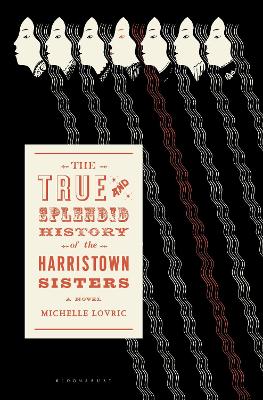
clementine
Written on Dec 17, 2015
I was skeptical for the first hundred or so pages of this book. It starts off slowly, and I was iffy on the writing. It's strange to me; Lovric can surely turn a beautiful phrase, but at times her description verged into ridiculous territory for me. It's like she's unwaveringly averse to ever just calling something by its name. I don't have the book next to me right now, but there was a time when she described a drumstick as something like "a brown baton of meat" and I couldn't help but roll my eyes. These types of things seem to me to be so stilted that they jar me and take me out of what is otherwise - for a good 80% of the book - a truly compelling story.
I think what I like best about this book is that, contrary to the majority of classifications I've seen, it's not really historical fiction. I mean, it's fiction set in the past, but calling it historical fiction flattens it. How could someone describe the genre of this book without the words "magical realism"? Magical realism set in the years after the Irish potato famine, sure - but magical realism nonetheless. I mean, the narrator's name is Manticory, for god's sake!
I think viewing it through the lens of magical realism also helps to put the ending into perspective for me. Anyone who's read some of my reviews will know that I'm not often a proponent of a neat, happily-ever-after ending. And I did kind of feel cheated when Darcy died, Eileen became the sister they never had, Phelan Swiney, Mariner miraculously came back into the picture, Pertilly married a nice man, and Manticory ended up with the love of her life. But I suppose when you view the book as a tall tale, this type of fairytale ending makes sense. This also helps me to understand the characterization here, too; yes, many of these characters are caricatures - Darcy especially, but to a certain degree Pertilly, Annora, Rainfleury, and Tristan all fell into that category at various points for me as well. But I think understanding the novel as more of a fable than something meant to be completely believable helps to assuage these criticisms.
I loved the exploration of celebrity in the context of a historical framing. Many of the struggles the sisters dealt with seem not at all foreign to anyone familiar with today's celebrity culture. Though I found Lovric's writing clunky at times, I can't fault her for her worldbuilding; the book is incredibly dense and rich, packed with historical detail and as utterly believable as such a fantastical story could ever be. Although I do have gripes with this book, generally I think it's unique, fascinating, and above all compelling to read. I think I'll revisit this one in the future.
